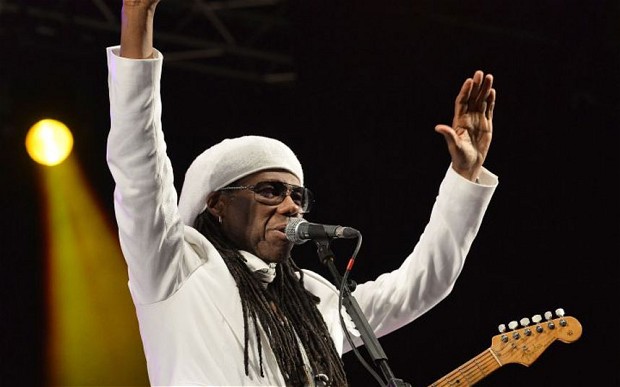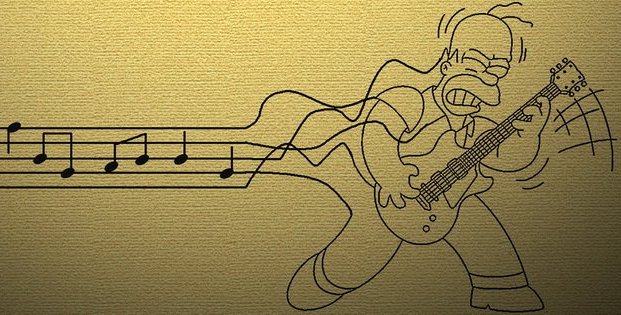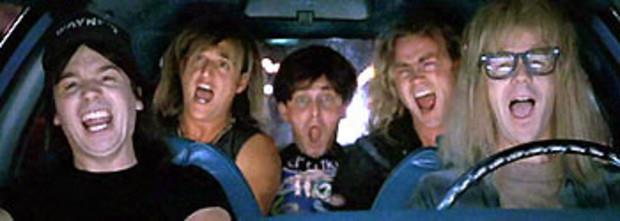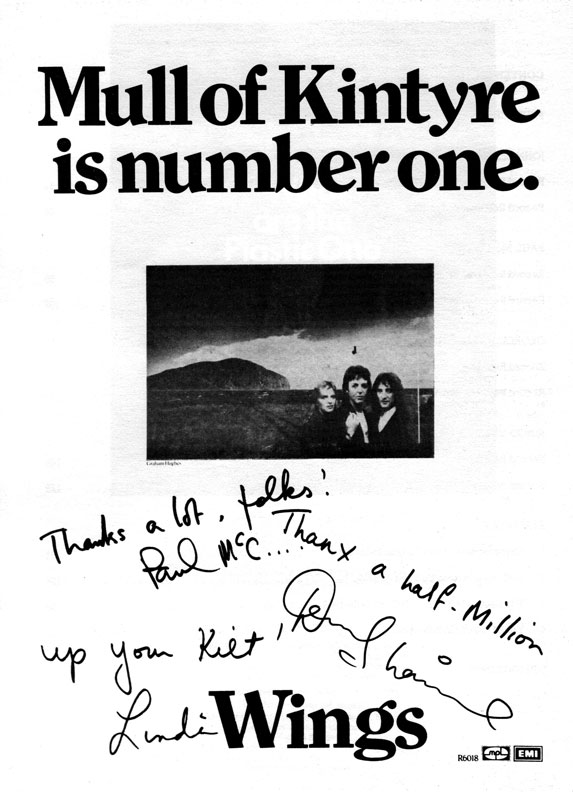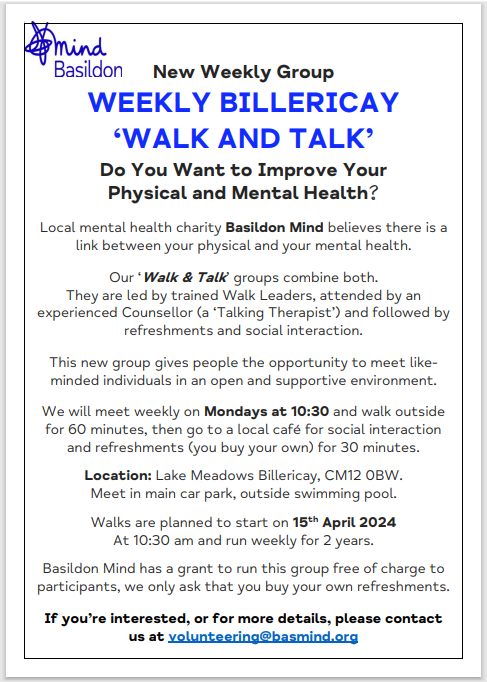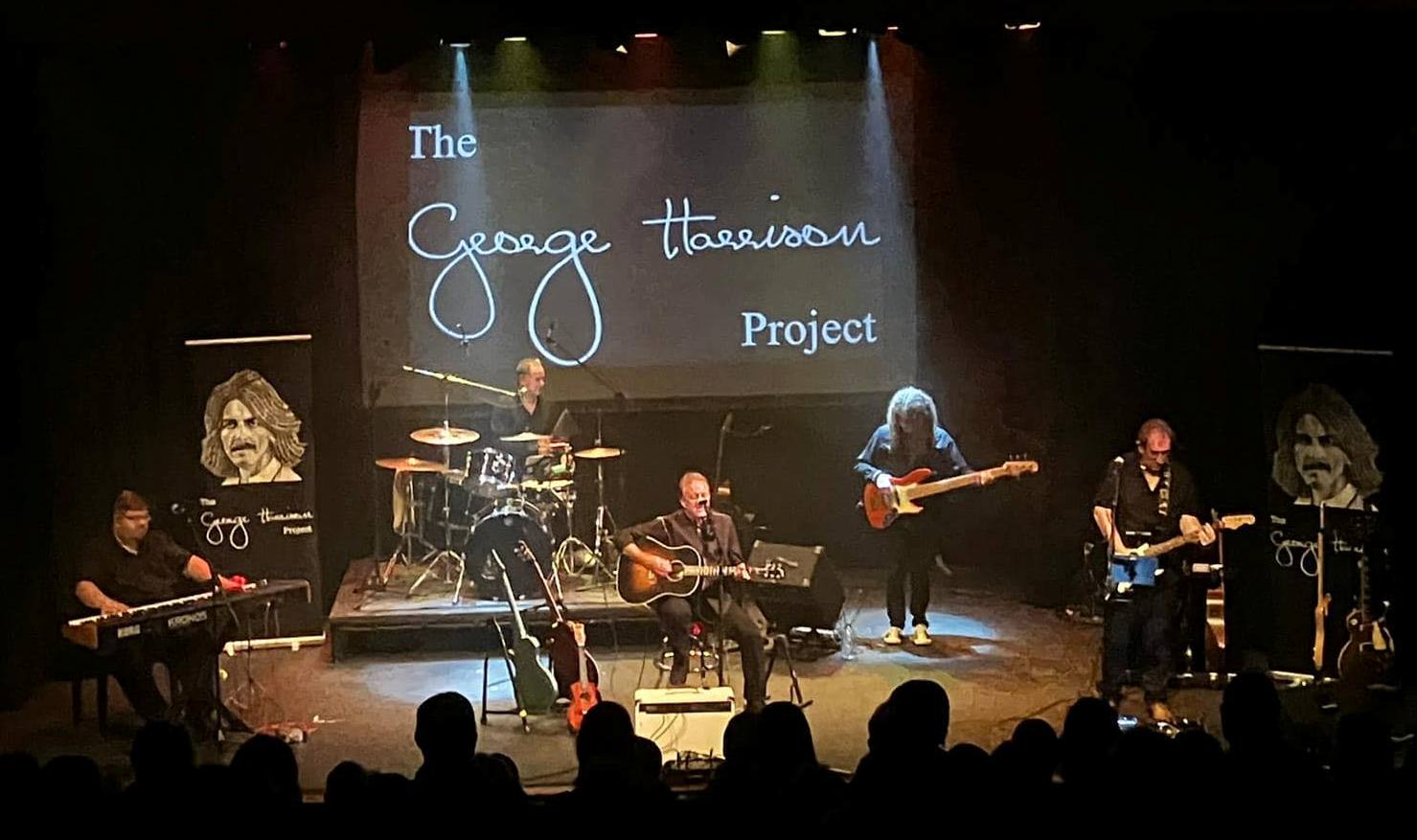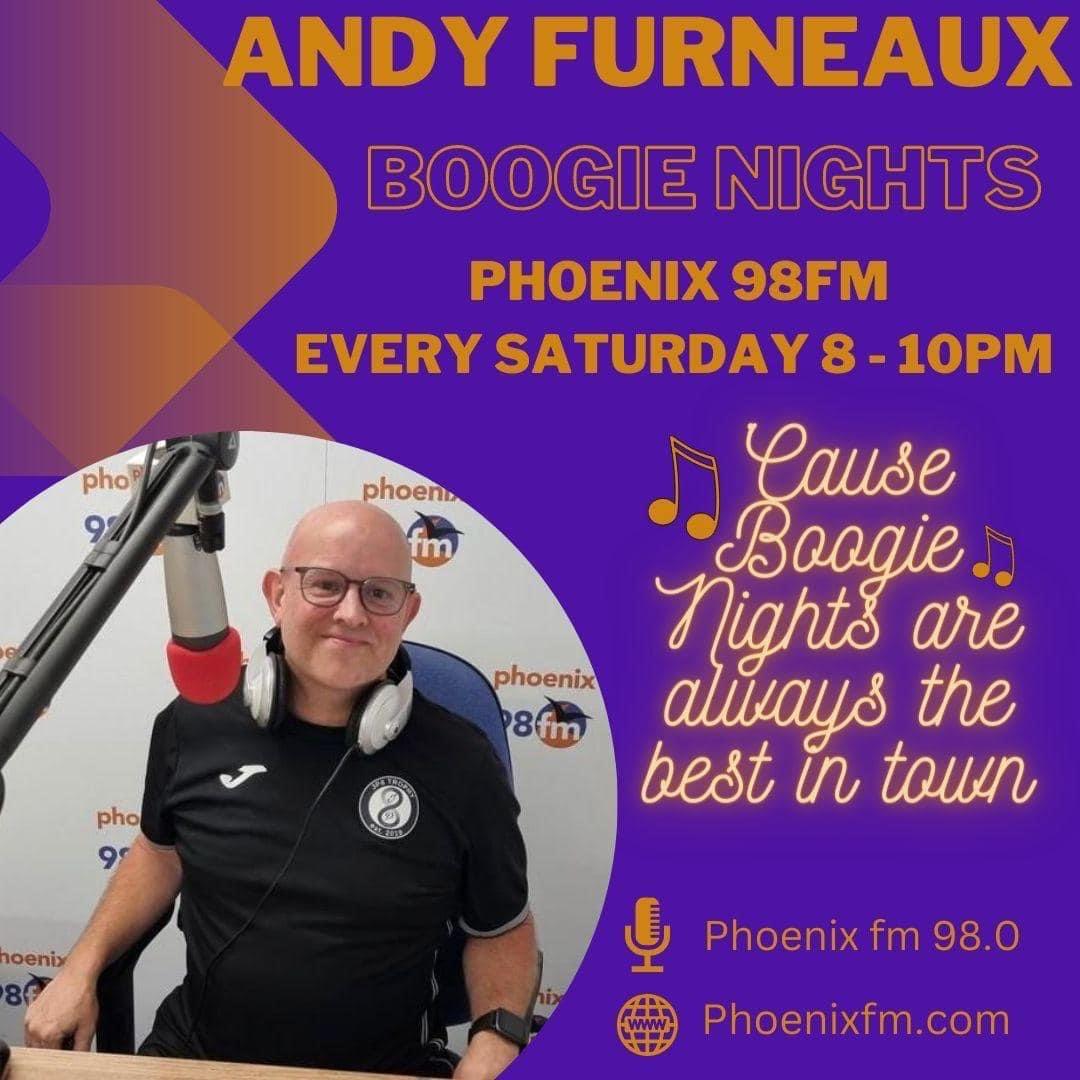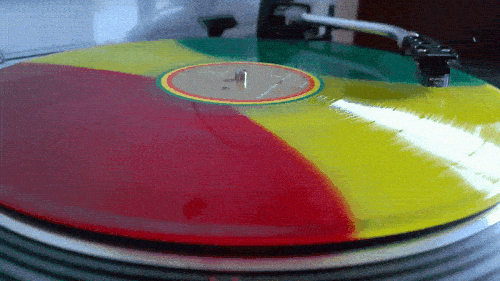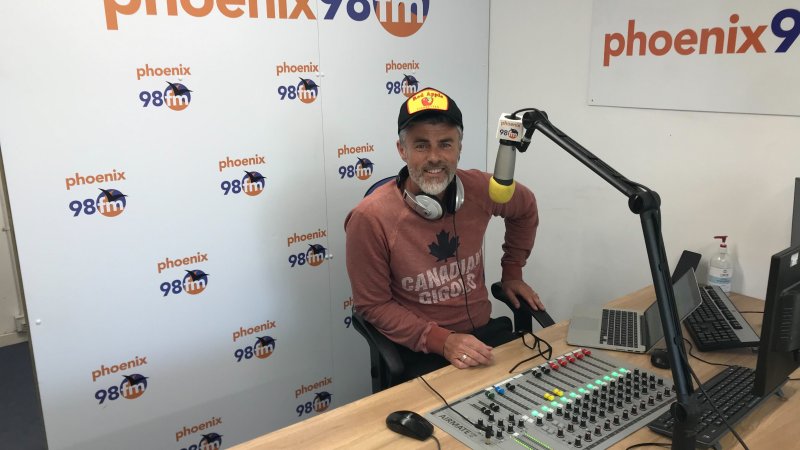I much enjoyed today’s show despite a few technical problems. We started with The Beatles. Episode 3
Paperback Writer
In 1966 during a tour of the Philippines, the group unintentionally snubbed the nation’s first lady, Imelda Marcos, who had expected them to attend a breakfast reception at the Presidential Palace. When presented with the invitation, Epstein politely declined on the band members’ behalf, as it had never been his policy to accept such official invitations. They soon found that the Marcos regime was unaccustomed to taking “no” for an answer. The resulting riots endangered the group and they escaped the country with difficulty. Immediately afterward, the band members visited India for the first time.
Almost as soon as they returned home, they faced a fierce backlash from US religious and social conservatives (as well as the Ku Klux Klan) over a comment Lennon had made in a March interview with British reporter Maureen Cleave – We’re more popular than Jesus now.” The comment went virtually unnoticed in England, but when US teenage fan magazine Datebook printed it five months later—on the eve of the group’s August US tour—it sparked a controversy with Christians in the American “Bible Belt”.
Rubber Soul had marked a major step forward; Revolver, released in August 1966 a week before the band’s final tour, marked another.
TAXMAN
Revolver featured sophisticated songwriting, studio experimentation, and a greatly expanded repertoire of musical styles. Among Revolver’s experimental songs was “Tomorrow Never Knows”. Its creation involved eight tape decks distributed about the EMI building, each manned by an engineer or band member, who randomly varied the movement of a tape loop while Martin created a composite recording by sampling the incoming data.
Tomorrow Never Knows
In 2003, Rolling Stone ranked Revolver as the third greatest album of all time.
Eleanor Rigby
As preparations were made for their final US tour, the band members knew that their music would hardly be heard. Having originally used Vox AC30 amplifiers, they later acquired more powerful 100-watt amplifiers, but these were still inadequate. Struggling to compete with the volume of sound generated by screaming fans, the band decided to make the August tour their last.
Freed from the burden of touring, the band embraced an increasingly experimental approach as they returned to the studio.
The sessions initially yielded the non-album double A-side single “Strawberry Fields Forever”/”Penny Lane” in February 1967
Penny Lane/Strawberry Fields Forever
Work began on Sgt. Pepper’s Lonely Hearts Club Band, beginning in late November 1966. According to engineer Geoff Emerick, the album’s recording took over seven hundred hours.
Sgt. Pepper’s Lonely Hearts Club Band
Geoff Emerick recalled the band’s insistence “that everything on Sgt. Pepper had to be different. We had microphones right down in the bells of brass instruments and headphones turned into microphones attached to violins. We used giant primitive oscillators to vary the speed of instruments and vocals and we had tapes chopped to pieces and stuck together upside down and the wrong way around.”
Parts of “A Day in the Life” featured a forty-piece orchestra. The musical complexity of the records, created using relatively primitive four-track recording technology, astounded contemporary artists. Among music critics, acclaim for the album was virtually universal.
A Day In The Life
Sgt. Pepper was the first major pop/rock LP to include its complete lyrics, which appeared on the back cover.
Lucy in The Sky with Diamonds
On 25 June the band performed their forthcoming single, “All You Need Is Love”, to an estimated 350 million viewers on Our World, the first live global television link.
All You Need is Love
Two months later the group suffered a loss that threw their career into turmoil. Having been introduced to Maharishi Mahesh Yogi only the previous night in London, on 25 August they travelled to Bangor for his Transcendental Meditation retreat. Two days later, their manager’s assistant Peter Brown phoned to inform them that Epstein had died. The coroner ruled the death an accidental carbitol overdose, though it was widely rumoured a suicide. His death left the group disorientated and fearful about the future.
Hello Goodbye
Magical Mystery Tour; the soundtrack to a forthcoming Beatles television film, was released in the UK as a six-track double EP in early December 1967. First aired on Boxing Day, the Magical Mystery Tour film, largely directed by McCartney, brought the group their first major negative UK press.
Magical Mystery Tour/Flying
Next Week here on the Sunday Replay, 1968 to The End, The final episode of our tribute to the Beatles
3@3 from Paul McCartney – My Love/Maybe I’m Amazed/ Live and Let Die
Then it was the fabulous D’Ukes!
D’Ukes are an Essex based ukulele band including singers, bass and percussion that perform a huge variety of music to suit all
tastes all on different types of ukuleles! Formed in 2009 by Dave Warren, a guitar and ukulele teacher, D’Ukes are a diverse group
of musicians from across the Essex region (including Chelmsford, Romford, Hornchurch, Grays, Braintree and Hatfield Peverel)
whose interests cover the complete musical spectrum. What brings them together is an enthusiasm for playing a small instrument
with 4 nylon strings – the Ukulele! The music is an eclectic mix spanning songs by artists as diverse as the Beach Boys, Amy
Winehouse, Deep Purple, Johnny Cash, Blondie, and Radiohead. D’Ukes are Geri Aldwinckle (Uke & Vocals); Martin Burdikin (Uke
& Vocals); Jamie Gurnett (Uke & Vocals); John Mattock (Bass Uke); Phil Seeley (Uke & Vocals); Brian Smith (Lead Uke & Backing
Vocals); Hazel Smith (Uke & Vocals); Dave Warren (Lead Uke & Bass Uke).
Unfortunately the session was beset with a few technical problems with the Phoenix computer but D’Ukes rose to the occasion and even performed an extra song to cover me whilst I got things sorted out. Apologies to D’Ukes for this and thanks for your help. You can hear the session again here
[audio:https://www.phoenixfm.com/wp-content/uploads/2012/10/Dukes-on-Phoenix-21-10-12.mp3|titles=Dukes on Phoenix 21 10 12]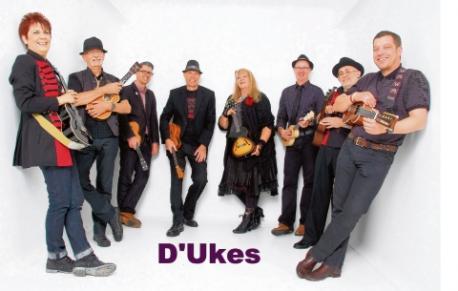
|
Brentwood: currently 12°C, a few clouds high today 12°C, low tonight 7°C sunrise 5.38am, sunset 8.13pm |
The Beatles Story Episode 3 – 3@3 Paul McCartney – and D’Ukes
I much enjoyed today’s show despite a few technical problems. We started with The Beatles. Episode 3
Paperback Writer
In 1966 during a tour of the Philippines, the group unintentionally snubbed the nation’s first lady, Imelda Marcos, who had expected them to attend a breakfast reception at the Presidential Palace. When presented with the invitation, Epstein politely declined on the band members’ behalf, as it had never been his policy to accept such official invitations. They soon found that the Marcos regime was unaccustomed to taking “no” for an answer. The resulting riots endangered the group and they escaped the country with difficulty. Immediately afterward, the band members visited India for the first time.
Almost as soon as they returned home, they faced a fierce backlash from US religious and social conservatives (as well as the Ku Klux Klan) over a comment Lennon had made in a March interview with British reporter Maureen Cleave – We’re more popular than Jesus now.” The comment went virtually unnoticed in England, but when US teenage fan magazine Datebook printed it five months later—on the eve of the group’s August US tour—it sparked a controversy with Christians in the American “Bible Belt”.
Rubber Soul had marked a major step forward; Revolver, released in August 1966 a week before the band’s final tour, marked another.
TAXMAN
Revolver featured sophisticated songwriting, studio experimentation, and a greatly expanded repertoire of musical styles. Among Revolver’s experimental songs was “Tomorrow Never Knows”. Its creation involved eight tape decks distributed about the EMI building, each manned by an engineer or band member, who randomly varied the movement of a tape loop while Martin created a composite recording by sampling the incoming data.
Tomorrow Never Knows
In 2003, Rolling Stone ranked Revolver as the third greatest album of all time.
Eleanor Rigby
As preparations were made for their final US tour, the band members knew that their music would hardly be heard. Having originally used Vox AC30 amplifiers, they later acquired more powerful 100-watt amplifiers, but these were still inadequate. Struggling to compete with the volume of sound generated by screaming fans, the band decided to make the August tour their last.
Freed from the burden of touring, the band embraced an increasingly experimental approach as they returned to the studio.
The sessions initially yielded the non-album double A-side single “Strawberry Fields Forever”/”Penny Lane” in February 1967
Penny Lane/Strawberry Fields Forever
Work began on Sgt. Pepper’s Lonely Hearts Club Band, beginning in late November 1966. According to engineer Geoff Emerick, the album’s recording took over seven hundred hours.
Sgt. Pepper’s Lonely Hearts Club Band
Geoff Emerick recalled the band’s insistence “that everything on Sgt. Pepper had to be different. We had microphones right down in the bells of brass instruments and headphones turned into microphones attached to violins. We used giant primitive oscillators to vary the speed of instruments and vocals and we had tapes chopped to pieces and stuck together upside down and the wrong way around.”
Parts of “A Day in the Life” featured a forty-piece orchestra. The musical complexity of the records, created using relatively primitive four-track recording technology, astounded contemporary artists. Among music critics, acclaim for the album was virtually universal.
A Day In The Life
Sgt. Pepper was the first major pop/rock LP to include its complete lyrics, which appeared on the back cover.
Lucy in The Sky with Diamonds
On 25 June the band performed their forthcoming single, “All You Need Is Love”, to an estimated 350 million viewers on Our World, the first live global television link.
All You Need is Love
Two months later the group suffered a loss that threw their career into turmoil. Having been introduced to Maharishi Mahesh Yogi only the previous night in London, on 25 August they travelled to Bangor for his Transcendental Meditation retreat. Two days later, their manager’s assistant Peter Brown phoned to inform them that Epstein had died. The coroner ruled the death an accidental carbitol overdose, though it was widely rumoured a suicide. His death left the group disorientated and fearful about the future.
Hello Goodbye
Magical Mystery Tour; the soundtrack to a forthcoming Beatles television film, was released in the UK as a six-track double EP in early December 1967. First aired on Boxing Day, the Magical Mystery Tour film, largely directed by McCartney, brought the group their first major negative UK press.
Magical Mystery Tour/Flying
Next Week here on the Sunday Replay, 1968 to The End, The final episode of our tribute to the Beatles
3@3 from Paul McCartney – My Love/Maybe I’m Amazed/ Live and Let Die
Then it was the fabulous D’Ukes!
D’Ukes are an Essex based ukulele band including singers, bass and percussion that perform a huge variety of music to suit all
tastes all on different types of ukuleles! Formed in 2009 by Dave Warren, a guitar and ukulele teacher, D’Ukes are a diverse group
of musicians from across the Essex region (including Chelmsford, Romford, Hornchurch, Grays, Braintree and Hatfield Peverel)
whose interests cover the complete musical spectrum. What brings them together is an enthusiasm for playing a small instrument
with 4 nylon strings – the Ukulele! The music is an eclectic mix spanning songs by artists as diverse as the Beach Boys, Amy
Winehouse, Deep Purple, Johnny Cash, Blondie, and Radiohead. D’Ukes are Geri Aldwinckle (Uke & Vocals); Martin Burdikin (Uke
& Vocals); Jamie Gurnett (Uke & Vocals); John Mattock (Bass Uke); Phil Seeley (Uke & Vocals); Brian Smith (Lead Uke & Backing
Vocals); Hazel Smith (Uke & Vocals); Dave Warren (Lead Uke & Bass Uke).
Unfortunately the session was beset with a few technical problems with the Phoenix computer but D’Ukes rose to the occasion and even performed an extra song to cover me whilst I got things sorted out. Apologies to D’Ukes for this and thanks for your help. You can hear the session again here
[audio:https://www.phoenixfm.com/wp-content/uploads/2012/10/Dukes-on-Phoenix-21-10-12.mp3|titles=Dukes on Phoenix 21 10 12]
The Beatles Story Episode 3 – 3@3 Paul McCartney – and D’Ukes
I much enjoyed today’s show despite a few technical problems. We started with The Beatles. Episode 3
Paperback Writer
In 1966 during a tour of the Philippines, the group unintentionally snubbed the nation’s first lady, Imelda Marcos, who had expected them to attend a breakfast reception at the Presidential Palace. When presented with the invitation, Epstein politely declined on the band members’ behalf, as it had never been his policy to accept such official invitations. They soon found that the Marcos regime was unaccustomed to taking “no” for an answer. The resulting riots endangered the group and they escaped the country with difficulty. Immediately afterward, the band members visited India for the first time.
Almost as soon as they returned home, they faced a fierce backlash from US religious and social conservatives (as well as the Ku Klux Klan) over a comment Lennon had made in a March interview with British reporter Maureen Cleave – We’re more popular than Jesus now.” The comment went virtually unnoticed in England, but when US teenage fan magazine Datebook printed it five months later—on the eve of the group’s August US tour—it sparked a controversy with Christians in the American “Bible Belt”.
Rubber Soul had marked a major step forward; Revolver, released in August 1966 a week before the band’s final tour, marked another.
TAXMAN
Revolver featured sophisticated songwriting, studio experimentation, and a greatly expanded repertoire of musical styles. Among Revolver’s experimental songs was “Tomorrow Never Knows”. Its creation involved eight tape decks distributed about the EMI building, each manned by an engineer or band member, who randomly varied the movement of a tape loop while Martin created a composite recording by sampling the incoming data.
Tomorrow Never Knows
In 2003, Rolling Stone ranked Revolver as the third greatest album of all time.
Eleanor Rigby
As preparations were made for their final US tour, the band members knew that their music would hardly be heard. Having originally used Vox AC30 amplifiers, they later acquired more powerful 100-watt amplifiers, but these were still inadequate. Struggling to compete with the volume of sound generated by screaming fans, the band decided to make the August tour their last.
Freed from the burden of touring, the band embraced an increasingly experimental approach as they returned to the studio.
The sessions initially yielded the non-album double A-side single “Strawberry Fields Forever”/”Penny Lane” in February 1967
Penny Lane/Strawberry Fields Forever
Work began on Sgt. Pepper’s Lonely Hearts Club Band, beginning in late November 1966. According to engineer Geoff Emerick, the album’s recording took over seven hundred hours.
Sgt. Pepper’s Lonely Hearts Club Band
Geoff Emerick recalled the band’s insistence “that everything on Sgt. Pepper had to be different. We had microphones right down in the bells of brass instruments and headphones turned into microphones attached to violins. We used giant primitive oscillators to vary the speed of instruments and vocals and we had tapes chopped to pieces and stuck together upside down and the wrong way around.”
Parts of “A Day in the Life” featured a forty-piece orchestra. The musical complexity of the records, created using relatively primitive four-track recording technology, astounded contemporary artists. Among music critics, acclaim for the album was virtually universal.
A Day In The Life
Sgt. Pepper was the first major pop/rock LP to include its complete lyrics, which appeared on the back cover.
Lucy in The Sky with Diamonds
On 25 June the band performed their forthcoming single, “All You Need Is Love”, to an estimated 350 million viewers on Our World, the first live global television link.
All You Need is Love
Two months later the group suffered a loss that threw their career into turmoil. Having been introduced to Maharishi Mahesh Yogi only the previous night in London, on 25 August they travelled to Bangor for his Transcendental Meditation retreat. Two days later, their manager’s assistant Peter Brown phoned to inform them that Epstein had died. The coroner ruled the death an accidental carbitol overdose, though it was widely rumoured a suicide. His death left the group disorientated and fearful about the future.
Hello Goodbye
Magical Mystery Tour; the soundtrack to a forthcoming Beatles television film, was released in the UK as a six-track double EP in early December 1967. First aired on Boxing Day, the Magical Mystery Tour film, largely directed by McCartney, brought the group their first major negative UK press.
Magical Mystery Tour/Flying
Next Week here on the Sunday Replay, 1968 to The End, The final episode of our tribute to the Beatles
3@3 from Paul McCartney – My Love/Maybe I’m Amazed/ Live and Let Die
Then it was the fabulous D’Ukes!
D’Ukes are an Essex based ukulele band including singers, bass and percussion that perform a huge variety of music to suit all
tastes all on different types of ukuleles! Formed in 2009 by Dave Warren, a guitar and ukulele teacher, D’Ukes are a diverse group
of musicians from across the Essex region (including Chelmsford, Romford, Hornchurch, Grays, Braintree and Hatfield Peverel)
whose interests cover the complete musical spectrum. What brings them together is an enthusiasm for playing a small instrument
with 4 nylon strings – the Ukulele! The music is an eclectic mix spanning songs by artists as diverse as the Beach Boys, Amy
Winehouse, Deep Purple, Johnny Cash, Blondie, and Radiohead. D’Ukes are Geri Aldwinckle (Uke & Vocals); Martin Burdikin (Uke
& Vocals); Jamie Gurnett (Uke & Vocals); John Mattock (Bass Uke); Phil Seeley (Uke & Vocals); Brian Smith (Lead Uke & Backing
Vocals); Hazel Smith (Uke & Vocals); Dave Warren (Lead Uke & Bass Uke).
Unfortunately the session was beset with a few technical problems with the Phoenix computer but D’Ukes rose to the occasion and even performed an extra song to cover me whilst I got things sorted out. Apologies to D’Ukes for this and thanks for your help. You can hear the session again here
[audio:https://www.phoenixfm.com/wp-content/uploads/2012/10/Dukes-on-Phoenix-21-10-12.mp3|titles=Dukes on Phoenix 21 10 12]
The Beatles Story Episode 3 – 3@3 Paul McCartney – and D’Ukes
I much enjoyed today’s show despite a few technical problems. We started with The Beatles. Episode 3
Paperback Writer
In 1966 during a tour of the Philippines, the group unintentionally snubbed the nation’s first lady, Imelda Marcos, who had expected them to attend a breakfast reception at the Presidential Palace. When presented with the invitation, Epstein politely declined on the band members’ behalf, as it had never been his policy to accept such official invitations. They soon found that the Marcos regime was unaccustomed to taking “no” for an answer. The resulting riots endangered the group and they escaped the country with difficulty. Immediately afterward, the band members visited India for the first time.
Almost as soon as they returned home, they faced a fierce backlash from US religious and social conservatives (as well as the Ku Klux Klan) over a comment Lennon had made in a March interview with British reporter Maureen Cleave – We’re more popular than Jesus now.” The comment went virtually unnoticed in England, but when US teenage fan magazine Datebook printed it five months later—on the eve of the group’s August US tour—it sparked a controversy with Christians in the American “Bible Belt”.
Rubber Soul had marked a major step forward; Revolver, released in August 1966 a week before the band’s final tour, marked another.
TAXMAN
Revolver featured sophisticated songwriting, studio experimentation, and a greatly expanded repertoire of musical styles. Among Revolver’s experimental songs was “Tomorrow Never Knows”. Its creation involved eight tape decks distributed about the EMI building, each manned by an engineer or band member, who randomly varied the movement of a tape loop while Martin created a composite recording by sampling the incoming data.
Tomorrow Never Knows
In 2003, Rolling Stone ranked Revolver as the third greatest album of all time.
Eleanor Rigby
As preparations were made for their final US tour, the band members knew that their music would hardly be heard. Having originally used Vox AC30 amplifiers, they later acquired more powerful 100-watt amplifiers, but these were still inadequate. Struggling to compete with the volume of sound generated by screaming fans, the band decided to make the August tour their last.
Freed from the burden of touring, the band embraced an increasingly experimental approach as they returned to the studio.
The sessions initially yielded the non-album double A-side single “Strawberry Fields Forever”/”Penny Lane” in February 1967
Penny Lane/Strawberry Fields Forever
Work began on Sgt. Pepper’s Lonely Hearts Club Band, beginning in late November 1966. According to engineer Geoff Emerick, the album’s recording took over seven hundred hours.
Sgt. Pepper’s Lonely Hearts Club Band
Geoff Emerick recalled the band’s insistence “that everything on Sgt. Pepper had to be different. We had microphones right down in the bells of brass instruments and headphones turned into microphones attached to violins. We used giant primitive oscillators to vary the speed of instruments and vocals and we had tapes chopped to pieces and stuck together upside down and the wrong way around.”
Parts of “A Day in the Life” featured a forty-piece orchestra. The musical complexity of the records, created using relatively primitive four-track recording technology, astounded contemporary artists. Among music critics, acclaim for the album was virtually universal.
A Day In The Life
Sgt. Pepper was the first major pop/rock LP to include its complete lyrics, which appeared on the back cover.
Lucy in The Sky with Diamonds
On 25 June the band performed their forthcoming single, “All You Need Is Love”, to an estimated 350 million viewers on Our World, the first live global television link.
All You Need is Love
Two months later the group suffered a loss that threw their career into turmoil. Having been introduced to Maharishi Mahesh Yogi only the previous night in London, on 25 August they travelled to Bangor for his Transcendental Meditation retreat. Two days later, their manager’s assistant Peter Brown phoned to inform them that Epstein had died. The coroner ruled the death an accidental carbitol overdose, though it was widely rumoured a suicide. His death left the group disorientated and fearful about the future.
Hello Goodbye
Magical Mystery Tour; the soundtrack to a forthcoming Beatles television film, was released in the UK as a six-track double EP in early December 1967. First aired on Boxing Day, the Magical Mystery Tour film, largely directed by McCartney, brought the group their first major negative UK press.
Magical Mystery Tour/Flying
Next Week here on the Sunday Replay, 1968 to The End, The final episode of our tribute to the Beatles
3@3 from Paul McCartney – My Love/Maybe I’m Amazed/ Live and Let Die
Then it was the fabulous D’Ukes!
D’Ukes are an Essex based ukulele band including singers, bass and percussion that perform a huge variety of music to suit all
tastes all on different types of ukuleles! Formed in 2009 by Dave Warren, a guitar and ukulele teacher, D’Ukes are a diverse group
of musicians from across the Essex region (including Chelmsford, Romford, Hornchurch, Grays, Braintree and Hatfield Peverel)
whose interests cover the complete musical spectrum. What brings them together is an enthusiasm for playing a small instrument
with 4 nylon strings – the Ukulele! The music is an eclectic mix spanning songs by artists as diverse as the Beach Boys, Amy
Winehouse, Deep Purple, Johnny Cash, Blondie, and Radiohead. D’Ukes are Geri Aldwinckle (Uke & Vocals); Martin Burdikin (Uke
& Vocals); Jamie Gurnett (Uke & Vocals); John Mattock (Bass Uke); Phil Seeley (Uke & Vocals); Brian Smith (Lead Uke & Backing
Vocals); Hazel Smith (Uke & Vocals); Dave Warren (Lead Uke & Bass Uke).
Unfortunately the session was beset with a few technical problems with the Phoenix computer but D’Ukes rose to the occasion and even performed an extra song to cover me whilst I got things sorted out. Apologies to D’Ukes for this and thanks for your help. You can hear the session again here
[audio:https://www.phoenixfm.com/wp-content/uploads/2012/10/Dukes-on-Phoenix-21-10-12.mp3|titles=Dukes on Phoenix 21 10 12]
Now on air
Coming up

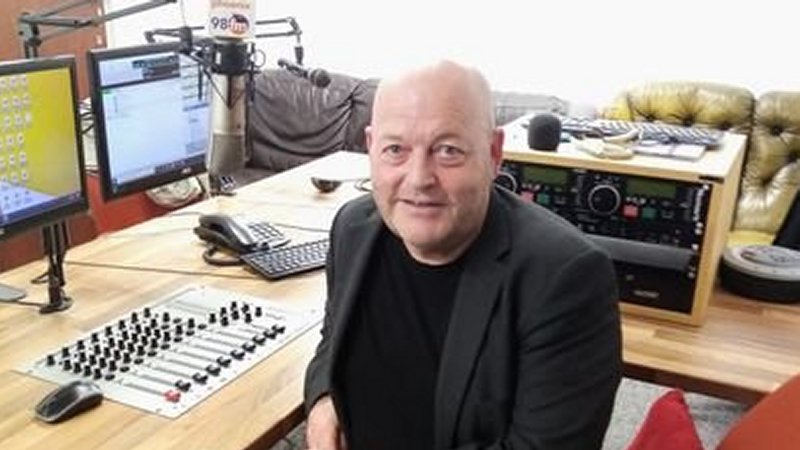
More from Bob Simpson
More from Phoenix FM






